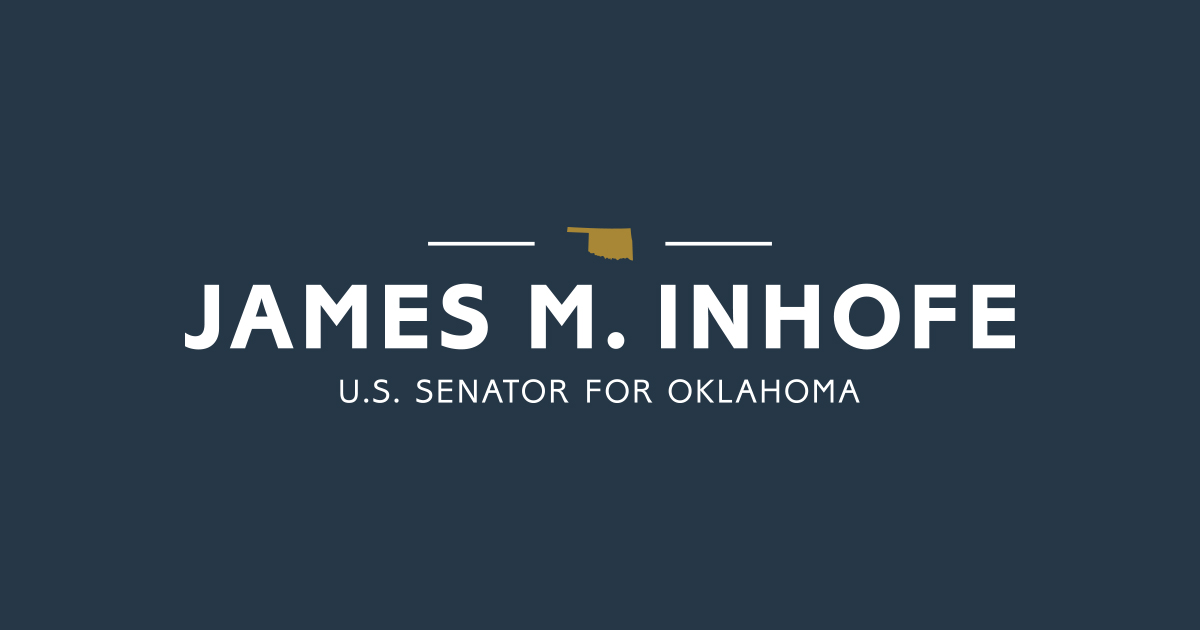Source: United States Senator for Oklahoma James Inhofe
Yesterday, U.S. Sens. Jim Inhofe (R-Okla.), Angus King (I-Maine), Chris Coons (D-Del.) and James Lankford (R-Okla.) reintroduced the Constitution education Is Valuable In Community Schools (CIVICS) Act – supporting the development of Constitution and civics education curriculum for students across the country. The legislation comes just ahead of Constitution Day on September 17th, a date established in 1952 to recognize the importance of the United States Constitution and the importance of citizenship and civics in our daily lives.
The bill was previously introduced in the 116th and 115th Congresses.
“In February 1952, Congress established September 17th as Constitution day to recognize the importance of the United States Constitution and the value of citizenship and civics in our daily lives,” Inhofe said. “For over two centuries, the Constitution has reminded us of the importance of our nation’s basis and formation: that we are a government of the people, by the people and for the people. Yet, too often, students aren’t taught about the Constitution, its history or its principles. The Preamble asserts that the Constitution was written, in part, to secure the blessings of liberty for ourselves and future generations. We believe the best way to honor that promise is to instill the value of our God-given rights and self-governance in our young citizens. By enacting the CIVICS Act and emphasizing the importance of the Constitution in civics education, we can encourage more young Americans to be active participants in our democracy by communicating with their elected officials, engaging in advocacy and, when eligible, voting in state, local and federal elections.”
“Since its ratification in 1788, the U.S. Constitution has guided America’s system of government, and has been the blueprint for freedom and democracy around the globe,” King said. “The continued success of our unique experiment in self-government relies on each successive generation understanding our shared past, national values, and the framers’ careful – though imperfect – work. If we truly want a government of the people, by the people, and for the people, we must make sure the people have the tools and perspective needed to play their part. It is the responsibility of this generation and this Congress to ensure our students receive a full civics education. By passing the CIVICS Act and expanding teaching of the Constitution, we can help young Americans gain the knowledge they need to carry on the work of so many before them and continue our neverending work to build a more perfect union.”
“Civics education is essential to our democracy,” Coons said. “Curricula focused on our nation’s founding document offers both an important reminder of our history and a tool for young Americans to fully participate in civic life. That’s why—ahead of Constitution Day—my colleagues and I are advancing bipartisan legislation that supports a robust civics education curriculum and prepares a new generation of active citizens.”
“The Constitution isn’t just paper and ink. The soul of our nation rests in what our Constitution represents: our values and responsibilities as a nation,” Lankford said. “Now more than ever we must safeguard those values and defend the Constitution’s carefully crafted guarantees of our freedoms and rights. Our nation values the rule of law, personal responsibility without government coercion, and a limited federal government. We should recommit to the values outlined in our Constitution and teach them to our children and grandchildren. On Constitution Day, I hope you’ll join me in celebrating the freedom and responsibility we enjoy as Americans with gratitude for the sacrifices of those who have worn the cloth of our nation to protect our way of life.”
First established in 1952, Congress expanded the recognition of Constitution Day in 2004, requiring public schools and federal agencies to teach the Constitution and civics lessons. While the American History and Civics Education program under the Elementary and Secondary Education Act of 1965, as amended, created grants for institutions of higher education and other organizations to develop evidence based approaches to improve the quality of American history, civics and government, entities that receive these grants are not required to include educational programs regarding the Constitution or the Bill of Rights. The CIVICS Act would require grant recipients to develop programs that teach the Constitution.
